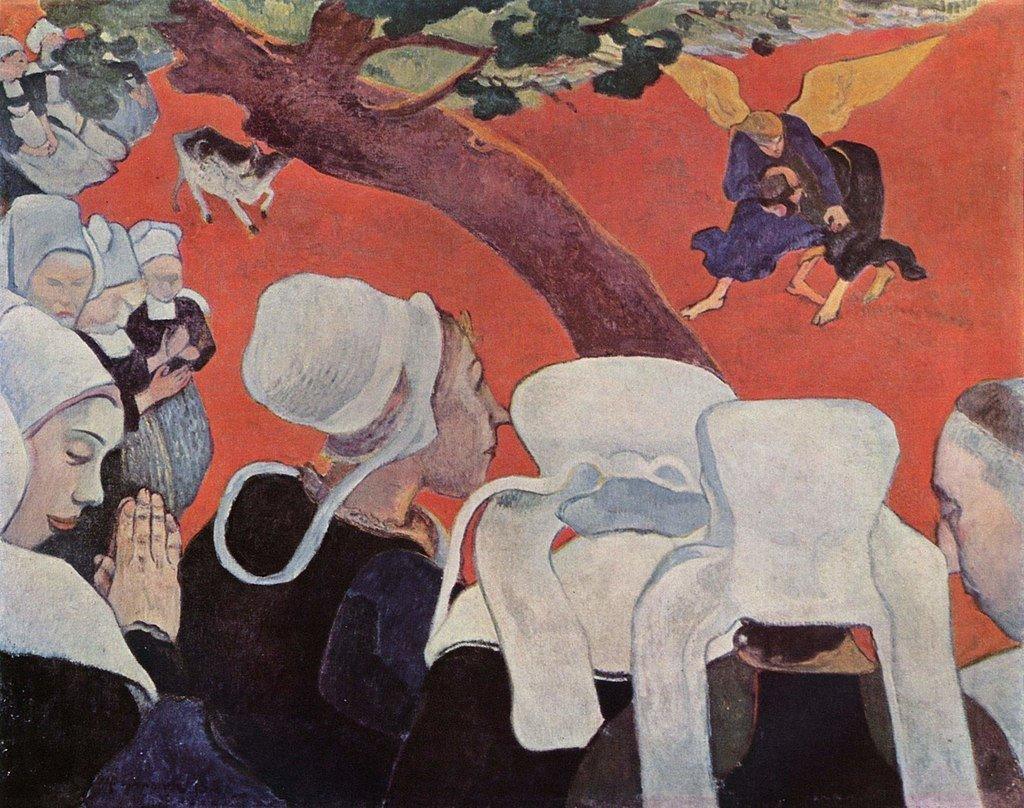Description
The Vision After the Sermon is a masterpiece by French artist Paul Gauguin, depicting a biblical scene in which Jacob wrestles with an angel. This painting is one of the artist's most famous and is considered one of the most important works of the Symbolist movement.
Gauguin's artistic style is characterized by his use of bright, saturated colors, as well as his flat, simplified painting technique. In The Vision After the Sermon, Gauguin uses a palette of vibrant and contrasting colors, which creates a sense of tension and drama in the work.
The composition of the painting is also very interesting. Gauguin uses an unusual perspective, in which the characters are arranged in a horizontal plane, which creates a sense of depth and movement in the work. In addition, the artist uses simple geometric shapes to represent the characters and objects, giving the work a primitive and timeless look.
The story of The Vision After The Sermon is also fascinating. Gauguin painted this work in 1888, during his stay in Brittany, France. The painting was inspired by an experience the artist had while attending a sermon at a local church. According to Gauguin, during the sermon, he had a vision in which he saw Jacob fighting with an angel, and he decided to depict this scene in his work.
In addition to these well-known aspects of the work, there are other lesser-known aspects that are also interesting. For example, Gauguin is believed to have used local models to represent the characters in the painting, giving the work an authentic and realistic look. It is also known that Gauguin worked on the painting for several months, making several preliminary sketches and studies before beginning the final work.

